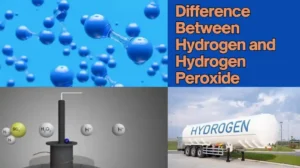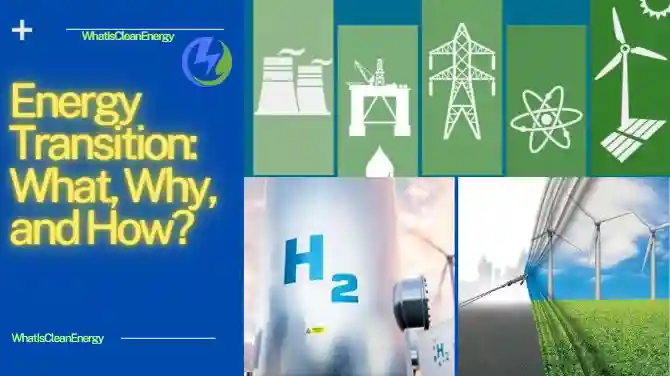Hydrogen is the lightest and most abundant element in the universe. It is odorless, colorless, and tasteless in its pure form. This makes it highly adaptable for various applications. In our earth, extensive numbers of hydrogen atoms are possessed in plants, animals, water, and also humans. Hydrogen is estimated to contribute 75% of the mass of the universe. Though it’s present in nearly all molecules in living things, it’s very low as a gas. It is less than one part per million (ppm) by volume.
Hydrogen is the first element in the periodic table and the most abundant element in the universe. It has many uses and properties that make it important for life, energy, and science. In this article, we will explain what hydrogen is, how it is formed, how it is used, and why it is important.
What is Hydrogen?

Hydrogen is a chemical element with the symbol H and the atomic number. It is the lightest element and has only one proton and one electron. It can exist as a gas, a liquid, or a solid, depending on the temperature and pressure. Hydrogen gas is colorless, odorless, tasteless, non-toxic, and highly flammable. It can form bonds with other elements to make different compounds, such as water, ammonia, methane, and many more.
How is Hydrogen Formed?
Hydrogen is the most common element in the universe, making up about 75% of all normal matter1. Hydrogen was formed in the first few minutes after the Big Bang when the universe was very hot and dense. As the universe cooled and expanded, hydrogen atoms combined to form helium, the second most abundant element. Some hydrogen atoms also fuse with other elements to form heavier elements, such as carbon, oxygen, and iron. This process is called nuclear fusion and it is the source of energy for stars.
On Earth, hydrogen is mostly found in water, which covers about 71%-75% of the planet’s surface. Water is a compound of hydrogen and oxygen, with the formula H2O. To separate hydrogen from water, a process called electrolysis is used, which involves passing an electric current through water to break it down into hydrogen and oxygen gas. This requires a lot of energy and is not very efficient.
Another way to produce hydrogen is by using fossil fuels, such as natural gas, coal, or oil, which contain hydrogen and carbon. These fuels are heated or reacted with steam to release hydrogen gas. This method is cheaper and faster, but it also produces carbon dioxide, a greenhouse gas that contributes to global warming.
How is Hydrogen Used?
Hydrogen has many uses in various fields and industries. Some of the main uses are:
Uses of Hydrogen as a Fuel
Hydrogen can be used as a fuel for vehicles, such as cars, buses, trucks, and planes. Hydrogen fuel cells convert hydrogen and oxygen into electricity and water, producing zero emissions. It can also be burned in internal combustion engines, similar to gasoline or diesel. However, hydrogen fuel is not widely available and requires special storage and delivery systems. Hydrogen fuel is also more expensive and less efficient than fossil fuels.
Energy
Hydrogen can be used as a source of energy for power plants, homes, and businesses. Hydrogen can be stored in tanks or pipelines and used to generate electricity when needed. It can also be combined with other renewable energy sources, such as solar, wind, or hydro, to create a more reliable and clean energy system. Hydrogen energy is more environmentally friendly and sustainable than fossil fuels, but it also faces challenges of cost, safety, and infrastructure.
Industry
Hydrogen is used as a raw material or a catalyst in many industrial processes, such as making ammonia, methanol, steel, plastics, and fertilizers. It is also used for refining oil, producing hydrogen peroxide, and welding metals. Hydrogen is essential for many products and services that we use every day, but it also consumes a lot of energy and resources.
Science
Hydrogen is used as a research tool and a subject of study in many scientific fields, such as chemistry, physics, astronomy, biology, and medicine. It is involved in many chemical reactions and physical phenomena, such as acid-base reactions, combustion, electrolysis, nuclear fusion, and spectroscopy. It is also important for understanding the origin and evolution of the universe, the structure and function of stars, the formation and properties of planets, and the origin and diversity of life.
Why is Hydrogen Important?
Hydrogen is important for many reasons, such as:
Life
Hydrogen is essential for life, as it is part of water, which is the most abundant and vital substance on Earth. It is also part of many organic molecules, such as carbohydrates, proteins, fats, and DNA, which are the building blocks of living organisms. It is also involved in many metabolic processes, such as respiration, photosynthesis, and digestion, which enable life to function and grow.
Environment
Hydrogen is a potential solution for reducing greenhouse gas emissions and mitigating climate change. It can replace fossil fuels as a clean and renewable energy source, which can reduce air pollution and improve human health. It can also help conserve natural resources and biodiversity, by reducing the demand and dependence on oil, coal, and gas, which are finite and harmful to the environment.
Economy
Hydrogen can create new opportunities and challenges for the economy, by creating new markets, jobs, and technologies. It can stimulate innovation and competitiveness, by developing new products, services, and industries, such as hydrogen vehicles, fuel cells, and hydrogen storage. It can also enhance energy security and diversity, by reducing the reliance and vulnerability on imported oil and gas, which are subject to price fluctuations and political conflicts.
Conclusion
Hydrogen is the simplest and most abundant element in the universe. It has many uses and properties that make it important for life, energy, and science. It is also a potential solution for reducing greenhouse gas emissions and mitigating climate change. However, hydrogen also faces challenges of cost, safety, and infrastructure, which need to be addressed and overcome. Hydrogen is a fascinating and versatile element that deserves our attention and appreciation.





